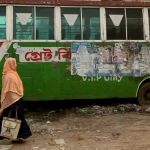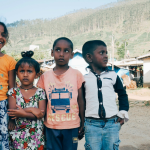Recent news reports have highlighted an upward trend in Sexual and Gender-Based Violence (SGBV) in Sri Lanka. Since the COVID-19 pandemic, with families being forced to stay home, violence against women and girls has intensified. In many cases, perpetrators of SGBV are family members, intimate partners, relatives, neighbours, and colleagues known to the survivors. The number of complaints received by the National Committee for Women in Sri Lanka increased to 100-200 a day, with more than 70% of complaints against domestic violence, and 15% of complaints regarding rape, cyber-violence, and family disputes during the pandemic.
Redress Mechanisms
In terms of legal protection, The Prevention of Domestic Violence Act (PDVA) No. 34 of 2005 has been an adequate redress mechanism for victims, despite the conservative societal backlash that the Act is “regulating” domestic households, which has been core to the issue of partner violence.
The Act provides a legal framework through which victims can seek protection orders from the Magistrate’s Court against perpetrators. Following this, the court can issue an Interim Protection Order that is valid for 14 days. The PDVA also lists emotional abuse under its definition of domestic violence as “a pattern of cruel, inhuman, degrading or humiliating conduct of a serious nature directed towards an aggrieved person.”
Furthermore, the Assistance to and Protection of Victims of Crime and Witnesses Act No. 04 of 2015 offers assistance through protection measures for victims during criminal investigations and safe havens, if required.
Interventions by iProbono and Other Civil Society Organisations
The civil society organisations in Sri Lanka have significantly contributed towards the protection of survivors of SGBV by providing legal/psychosocial counselling, safe and secure emergency accommodation and 24×7 hotline services. With its network of lawyers, iProbono has supported a number of survivors of SGBV by providing legal advice and litigation support. In one of its most recent cases, iProbono assisted a case of unlawful prosecution of survivors from a sex trafficking ring, which eventually led to securing their release. Furthermore, victims of domestic/intimate partner violence have reached out to iProbono to secure protection orders and legal assistance against the perpetrators.
iProbono also seeks to raise awareness about SGBV as a public issue that affects all segments of society, whilst educating survivors about their rights to receive support and redress.
With the establishment of Child and Women Development Units in Divisional Secretariats, international and national non-governmental organisations have supported district and divisional SGBV forums that coordinate between state actors and SGBV survivors to seek redress against perpetrators. These forums ensure that survivors receive effective remedies and services at district and divisional levels.
The Way Ahead
Sri Lanka is currently developing a new National Action Plan to address SGBV, which will be effective from 2023-2027. The action plan has been formulated in collaboration with over 14 sectoral ministries. Through this multi-sectoral approach, a common methodology is being introduced to ensure the compliance of all sectoral ministries to the legal and policy framework, with a zero-tolerance policy.
A toll-free national hotline is in operation by the Ministry of Women and Child Affairs; it provides counselling and legal support to survivors of violence.
With the increase in SGBV cases due to the COVID-19 pandemic, policymakers have prioritised legal provisions to respond to the national crisis. A proposed bill on “Gender Equality and Women’s Empowerment” is being drafted by the Women Parliamentarians’ Caucus and Select Committee of Parliament. Its enactment will establish a National Commission for Women and an ombudsman to pursue legal action against the violation of one’s rights.
Despite the availability of redress mechanisms for SGBV survivors, there has been a notable deficiency in delivering justice, and survivors have been hesitant to seek legal remedies. The first step towards addressing this issue is to build faith amongst communities through awareness programs and sensitisation of the relevant state authorities. In addition, the range of available support services requires further capacity strengthening to accommodate the various forms of prevailing SGBV cases in the country.
*Photo Credit: World Bank Blogs







